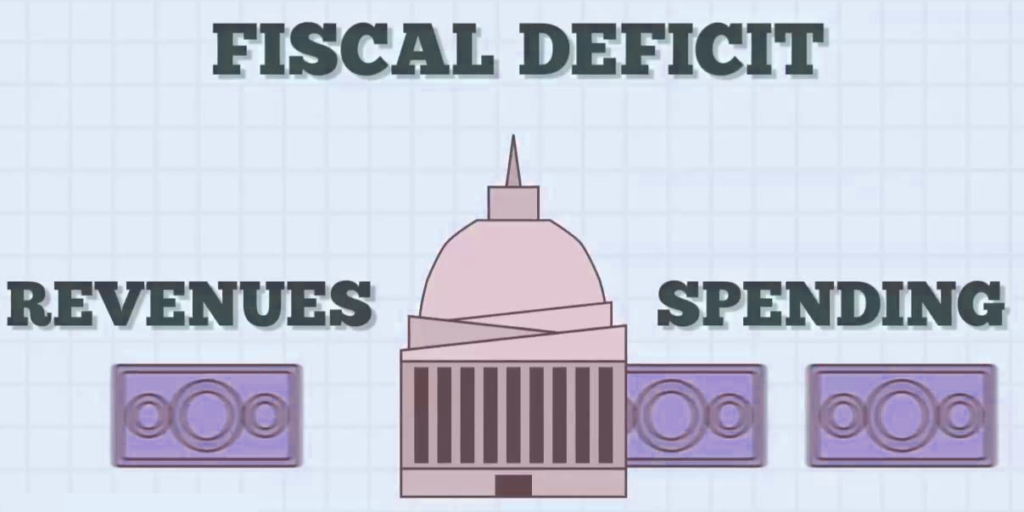Indian stock markets, which recently reached record highs, are now undergoing a correction. How the upcoming Interim Budget 2024 will affect?

Current Scenario.
The Indian stock markets are presently experiencing a correction in anticipation of the Interim Union Budget 2024. The stock market is very sensitive to what the government says during this Interim Budget, Because they provide insights into government policies and financial plans that shape future trends in various sectors, these announcements directly impact investor sentiment.
The stock market is likely to remain volatile ahead of the Union Budget that will be announced on 1 February 2024. Over the past five days, the BSE Sensex went down by more than 2%, coming close to the 71,400 level. Similarly, the NSE Nifty 50 fell by 489 points or 2.2%, reaching 21,571.80 points.
As it is the final budget before the Lok Sabha Elections in May, analysts believe that the upcoming budget is not likely to have a significant impact. They suggest that the budget after the elections will carry more importance, focusing on the government’s long-term vision.
What will be the Income Tax Rules?

FM Sitharaman might simplify income tax rules with minor changes. The government could raise the basic exemption limit and offer more benefits to support manufacturing. However, these changes may not heavily impact the budget. The government could consider raising the exemption income limit or reducing the highest surcharge rate to make the new tax rules more attractive.
Taxpayers hope for announcements like increasing the basic exemption and house rent allowance. There might be changes in the income tax structure to improve the new rules and simplify taxes, said Tanvi Kanchan, Head of Corporate Strategy at Anand Rathi Shares.
How the changes will impact the other sectors.
In the upcoming interim budget, the government is expected to maintain focus on sectors such as railways, defense, infrastructure, power, renewable energy, manufacturing, and real estate. Analysts anticipate the continuation of manufacturing incentives, support for infrastructure-related capital expenditure, and plans for disinvestments.
Over the last three years, the government has increased capex spending by over 30% CAGR, setting the budgeted capex target at 3.3% of GDP, the highest in 18 years. Ahead of the budget, sectors like real estate and banking & financial services may see outperformance, with a specific focus on affordable housing. The real estate sector’s push for industry status could positively impact related industries.
Additionally, manufacturing and renewable energy sectors are likely to receive additional stimulus. Agriculture and rural-related sectors, including fertilizers, affordable housing, small finance banks, and two-wheelers, are expected to be in focus, considering potential announcements for the rural economy and lower-income class due to upcoming general elections.
How the Government will deal with the Fiscal Deficit?

Keeping a close eye on the fiscal deficit target is crucial, as the government is aiming to narrow it down to 4.50% of GDP by the end of the fiscal year 2025-26, contrasting with the current target of 5.90% set for March 2024. India Ratings and Research (Ind-Ra) has laid out the government’s objective to achieve a fiscal deficit to GDP ratio of 5.3% in FY25, with plans for further reduction to 4.5% of GDP by FY26. The target of 5.9% for FY24 might be unattainable due to a lower nominal GDP growth rate, according to Ind-Ra. The agency foresees a net tax revenue buoyancy ratio of 1.2x in FY25 and notes a slowdown in capex growth during the same fiscal year, along with limited prospects for rationalizing revenue expenditure.
Summary.
To summarize, anticipation for Interim Budget 2024 triggers market correction. Sensitivity to government announcements heightens volatility. Limited impact expected pre-election; post-election budget holds more significance. Potential changes in income tax rules and focus on key sectors are likely. The government aims to reduce fiscal deficit; agencies provide projections. Investors closely watch the impact on real estate, banking, manufacturing, and rural sectors.
Also, check our Article on the Best ways to save Income Tax.
If you’d like to know how we analyze the market and provide accurate levels every day. then click on the Free Demo button below and change your trading life for good. 5X returns are possible in options trading If you have Spider Software in your trading system.
Disclaimer: The information provided in this Blog is for educational purposes only and should not be construed as financial advice. Trading in the stock market involves a significant level of risk and can result in both profits and losses. Spider Software & Team does not guarantee any specific outcome or profit from the use of the information provided in this Blog. It is the sole responsibility of the viewer to evaluate their own financial situation and to make their own decisions regarding any investments or trading strategies based on their individual financial goals, risk tolerance, and investment objectives. Spider Software & Team shall not be liable for any loss or damage, including without limitation any indirect, special, incidental or consequential loss or damage, arising from or in connection with the use of this blog or any information contained herein.





